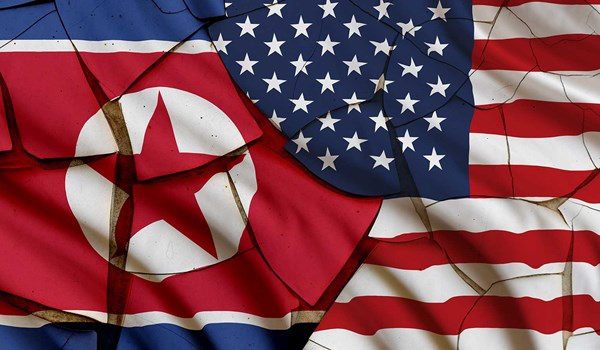
RNA - The White House has long suggested scrapping the nuclear program and missile development as a precondition for talks, and clearly that’s not going to happen, but North Korea seems very willing to discuss the subject within the talks, and would disarm if given the right deal. South Korea’s statement quotes North Korean Leader Kim as making it clear Pyongyang “would have no reason to keep nuclear weapons if the military threat to the North was eliminated.”
This makes sense, as North Korea has always presented its nuclear arsenal as a deterrent to an American attack. Getting a trustworthy guarantee that the US isn’t going to attack them in the future is clearly a big deal for North Korea, but is it attainable? That’s less clear, with President Donald Trump and other administration officials saying there is “possible progress,” but also downplaying the chances of an actual deal, claiming they don’t believe North Korea would deliver on such a proposal.
Some war-party officials have already taken the position that this wouldn’t be enough for talks, saying denuclearization of North Korea in “non-negotiable,” suggesting it remains a precondition. The question here isn’t whether or not there should be a precondition for talks; the question is when was the US ever an honest broker? The answer is never:
- Even before he entered office, Trump’s team was doing a lot of straight talking, particularly on the Israeli-Palestinian issue. They consistently obstructed the Palestinian territories’ attempt to gain UN member status. They rejected a UN Security Council proposal to recognize Palestine as a state along the 1967 borders. Then Trump unambiguously said in bald and undiplomatic terms that he was moving the US embassy to Jerusalem, Al-Quds, thereby recognizing a disputed city as Israel’s new capital. This was an exceptionally reckless and foolhardy move that proved beyond any doubt the US is not an honest broker in the Palestinian-Israeli conflict.
- Dismay over Trump’s inability to effectively handle the Iran nuclear deal of 2015 began long before he was sworn in as president. On the campaign trail, Trump described it as a “disaster” and “the worst deal ever negotiated” without clearly stating why. As president, Trump sullenly recertified the agreement twice. But he always indicated he wanted to assume a more hostile stance toward Iran. While taking a harder line toward Iran is hardly a desire Trump holds alone among Republicans and Democrats, he has offered little coherent vision on an alternative. Aside from gaming the EU with vague threats of violence to suggestions he could “renegotiate” the agreement, Trump has provided little in the way of viable policy options. This particular case should serve as a wakeup call for Pyongyang because it wants to take a similar diplomatic path. The only difference is that Iran never had a nuclear bomb.
- In the case of the Iran nuclear deal, the decertification also reinforces Trump’s disdain for multilateralism as a key tool for promoting US interests and resolving international problems. Not only does Trump’s decision incense America’s NATO partners in the deal, it also joins a long list of multilateral frameworks, alliances and agreements he has either abdicated, threatened or weakened. These include the Trans-Pacific Partnership, the North America Free Trade Agreement, the Paris climate accord, and NATO. By undermining these structures through such non-consultative and unilateral actions, the US discourages other countries from adhering to the rules-based international architectures and agreements.
Summing up, all this and more has direct relevance for normalizing ties between Pyongyang and Washington, because North Korea views the United States and its junior partners as arrayed against it since at least the Korean War in the 1950s. Under such conditions, getting North Korea to first give up its nukes and embrace a revisionist approach to foreign policy through talks with the United States will hardly be helped if the US is still undermining a key structure of rapprochement: being trustworthy. At a wider level, such unilateralism also harms US relations with its more traditional allies in Asia, i.e., Japan and South Korea, which view Washington to some degree as a less reliable and predictable partner for peace and stability in the region.
As it turns out, all of that is still in play after Pyongyang announced its readiness for talks. The idea that America could be an honest broker in negotiations is one the official Pyongyang should be wary of immediately. After all, all the US thinks about is to maintain its global primacy. It wants to remain a bully power and expects others, including North Korea, to remain in lock-step with its goals. Before rushing things for the sake of talks, North Koreans should grasp this concept to varying degrees on America’s views on foreign affairs.
847/940